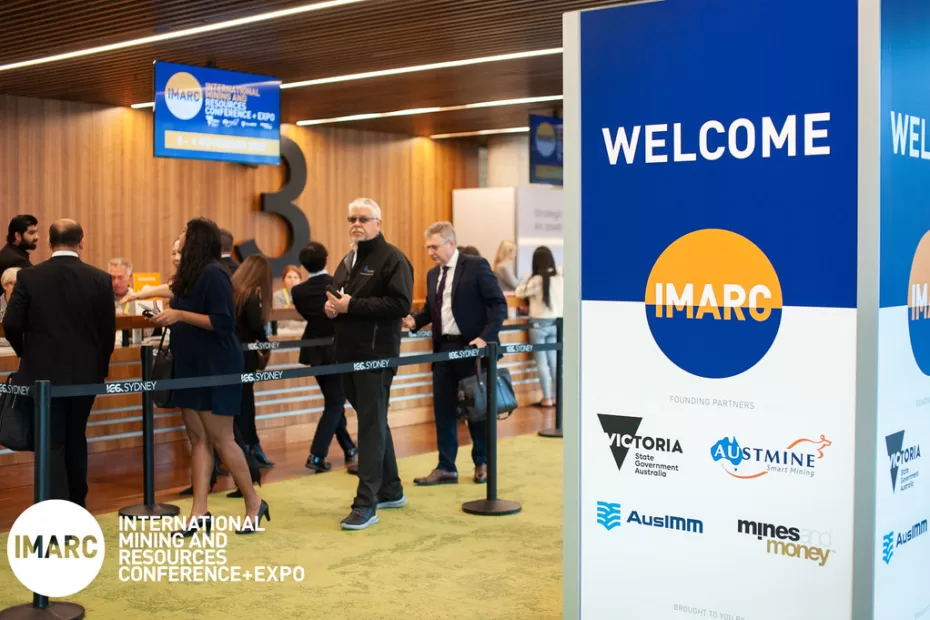Mining and resource leaders are gathering in Sydney this week for the 10th International Mining and Resources Conference (IMARC). The leaders are attending one of the world’s most important mining event and Australia’s largest business event.
Minerals have so far become integral to the global clean energy economy. They are also key components for products such as solar panels, batteries among others.
As the event concludes, officials have confirmed that, Mining industry is on the right ESG path. However, they have clarified that more work needs to be done. This is important in ensuring supply chains meet the standards of modern society expectations.
Environmental, Social, and Governance (ESG) is a lens used to rate a company or an investment and its exposure to environmental, social, and governance risks.
This includes the physical risks of climate change, the reputational risks from lack of action, and the regulatory risks of government action.
During the event, Executive Director of the Extractive Industries Transparency Initiative (EITI) Mark Robinson, the leading global standard for good governance in the extractive sector, said countries like Australia need to take a leadership position internationally on responsible mineral sourcing.
“Australia is rightly proud of its track record as a global leader in the extractives sector. In the context of unprecedented demand for minerals to fuel the energy transition.
Australia has a golden opportunity to be not only a global mining superpower, but also a leader on ESG performance,”
Also Read: 10 Years of IMARC: Australia Hosts Biggest Mining Event
Mining Work That Still Remains
Countries across Asia, Africa and South America have made steady progress in technical support.
However, regional leadership can be key in ensuring that crucial reforms are sustained. This is important in making mineral supply chains resilient.
“This is where Australia can really lead. There is clear alignment with the Government on Australia’s goals of supporting dialogue. These is especially on the energy transition and taking action against corruption.
The EITI is also at the heart of a digital transformation which is bringing information on the extractive sector into the public domain.
The opportunity exists now to ensure that the strategic minerals boom. These wil provide benefits to citizens in producing countries,” Mr. Robinson stated.
At the same time, Board Chair of Clareo, Peter Bryant noted that with all the focus on ESG, a lot of work still remains. He particularly acknowledged the impact on First Nations people from around the world.
“One Indigenous group in Canada studied every single ESG report known to mankind. They found that First Nations people only mentioned twice. Once in an appendix and once as a risk to be managed,” Mr. Bryant stated.
Addressing Mining Challenges
Mining Projects & Transactions Partner at MinterEllison Jordan Phillips observed that too often business and corporations turn to lawyers to address social issues.
If businesses want to address ESG challenges they will need to change their processes. These includes how they procure their goods through the supply chain,” Mr Phillips added
Likewise, Senior Director, Environment & Social Governance at Hexagon, Louise Daw, said Hexagon’s suppliers must adhere to the same strict standards set out by the UN in relation to human rights.
They also need to adhere to labour conditions while also looking at the precautionary principle and responsibility concerning the environment and anti-corruption.
Hexagon’s initiatives align with the United Nations Sustainability Development Goals. The Responsible Business Alliance, and the Carbon Disclosure Project, are representative of a multi-faceted approach and commitment to sustainability.
“Hexagon is proud to consider itself an employer of choice. We seek to ensure we have a culturally diverse and inclusive workplace environment .We want these across all of our global offices,” Ms. Dawa stated.
Also Read: Australia Poised to Take Global Lead in Critical Minerals
Partner at ERM Sabrina Genter works with clients to help identify, understand and manage their social and human rights risks. He also identifies impacts, and opportunities.
She further pointed out to the panel that the hardest part for a business in implementing good ESG policies is about core business process.


